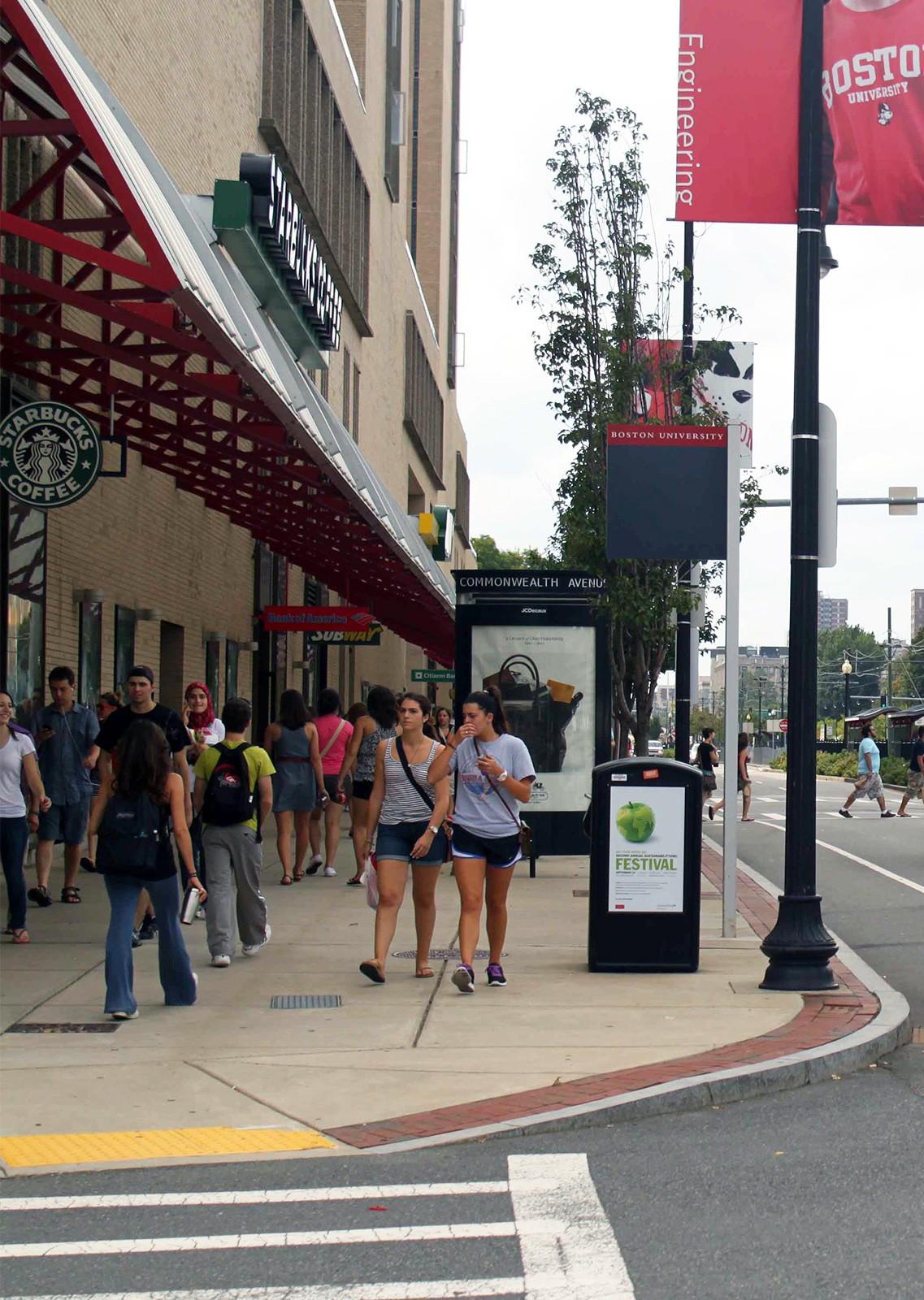The monetary cost of living on campus is already steep, but it’s about to get a little bit steeper. For the 2015-16 academic year at Boston University, the average cost will go up by $561, and the cost of dining plans will increase by $140, as published on BU’s housing website, according to a Feb. 28 email to students who had put down housing deposits.
Boston University spokesman Colin Riley said the cost could be attributed to the university’s maintenance needs, which increase every year. This includes the cost of labor to run existing facilities, as well as food and transportation costs.
“The cost of building them isn’t in [the new housing rates], but the cost of running them and managing them is,” Riley said. “The university tries to keep increases as low as possible and works very hard to do that.”
On average, rates, which are determined by the BU Board of Trustees, went up 3.5 percent from last year, Riley said. The Board of Trustees determines housing rates by looking at the number of students living off campus compared to on campus, among other items. Riley said many increases in dining and housing rates are inevitable.
“The increase is not related to providing new things. It’s just simply the cost of providing the service,” he told The Daily Free Press on March 5. “Higher education is a very labor-intensive business.”
This year, the housing deposit deadline was extended twice, first from Feb. 28 to March 3 and then to March 7. In the email sent by BU Housing, students were given until March 6 to decide whether or not they wanted to cancel their reservation. If students canceled within the week, they would be refunded their full $600.
In that time, Riley reported a 2 percent withdrawal rate from on-campus housing, which he said was typical. Regardless of the small percentage that decided to forgo living on campus, 75 percent of the student body decided to take the plunge. This high rate of retention has been stable throughout the years, Riley said.
“They [students] would be faced with the same situation if they lived off campus,” Riley said of the rising housing rates. “There are so many benefits to living on campus … it’s a big part of the reason we have such a high four-year graduation rate. In addition, if you live on campus and one of your roommates in a suite or an apartment move out, you don’t then have to share that cost with another roommate … There are a lot of positive reasons from living on campus.”
Of course, the convenience of living on campus can’t be beat. If you have a class at 1 p.m. in the College of Arts and Sciences or the College of Communication, you can leave your lovely abode in Warren Towers at 12:56 and still make it there on time. And it is nice that if something’s broken, BU Facilities is compelled to fix it. A landlord would likely not be that kind. There’s a lot BU Facilities does that you won’t get while living off campus, such as clearing the snow in front of your door and cleaning your bathroom when it gets to be a little too much to handle. However, this steep rise in housing and dining prices just isn’t something we can ignore.
One might ask: in the grand scheme of things, is that $700 total increase (room and board plus dining) really going to make or break your decision to live on campus? And while the answer might be “no” for some, there are many who can’t afford the increase. For the majority of BU students, our parents are paying for our housing. If, for example, a parent is on the fence, that extra $700 could be the breaking point.
Then there’s the issue of timing — the rates came out just hours after the final students put down their 2015-16 housing deposits. If you budgeted according to the 2014-2015 rates, not expecting such a huge increase in price, that could be the difference between your parents giving you the OK and them telling you, “That’s not what you told me before.” Try telling your parents that it doesn’t matter in the scheme of things. You budget it out in a certain way, and then BU springs this increase on you. How is that fair?
One of the ways that BU Housing could prevent problems like this from occurring in the future is just prioritizing transparency. Try releasing the housing rates before a housing reservation is due. There’s no way they weren’t aware of the increases at the time students were considering their future housing plans. Rather than let students make their decisions and changing the prices later, just lay all the cards on the table at once.
And perhaps while they’re at it, they could explain why housing rates rise so much every year to begin with. Students should know where their money is going and why the school is making them spend so much more than the year before to live in the same facilities. At this rate, by the time we graduate, a double in Warren will be as much as a double in a suite in Student Village II. And we don’t even want to think about how much that coveted spot in StuVi II will be.
But of course, we have no control over this increase in housing prices. We probably never will, and quite frankly, that’s OK. We’re the students, and we could never objectively make a call about housing costs. But providing students and families with some sort of footnotes for their housing bills could at least provide a little peace of mind while they’re signing that extra check.





















































































































